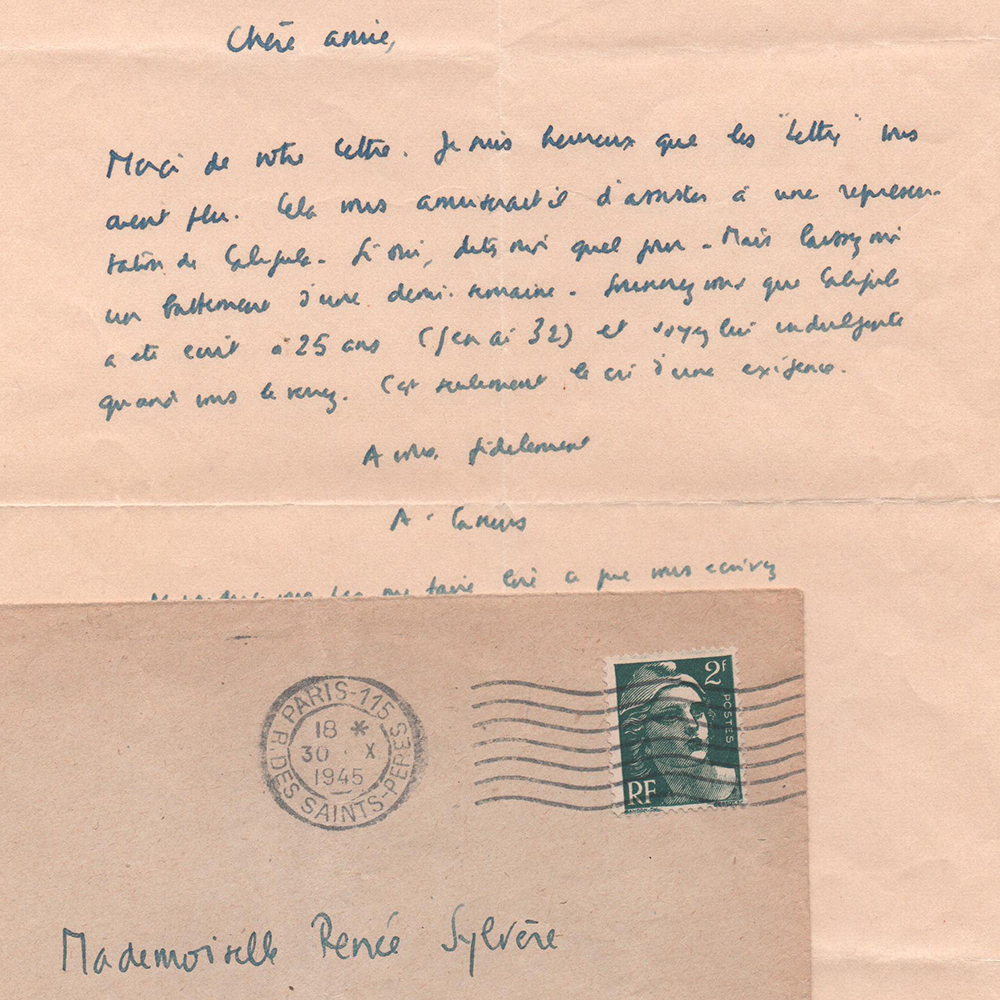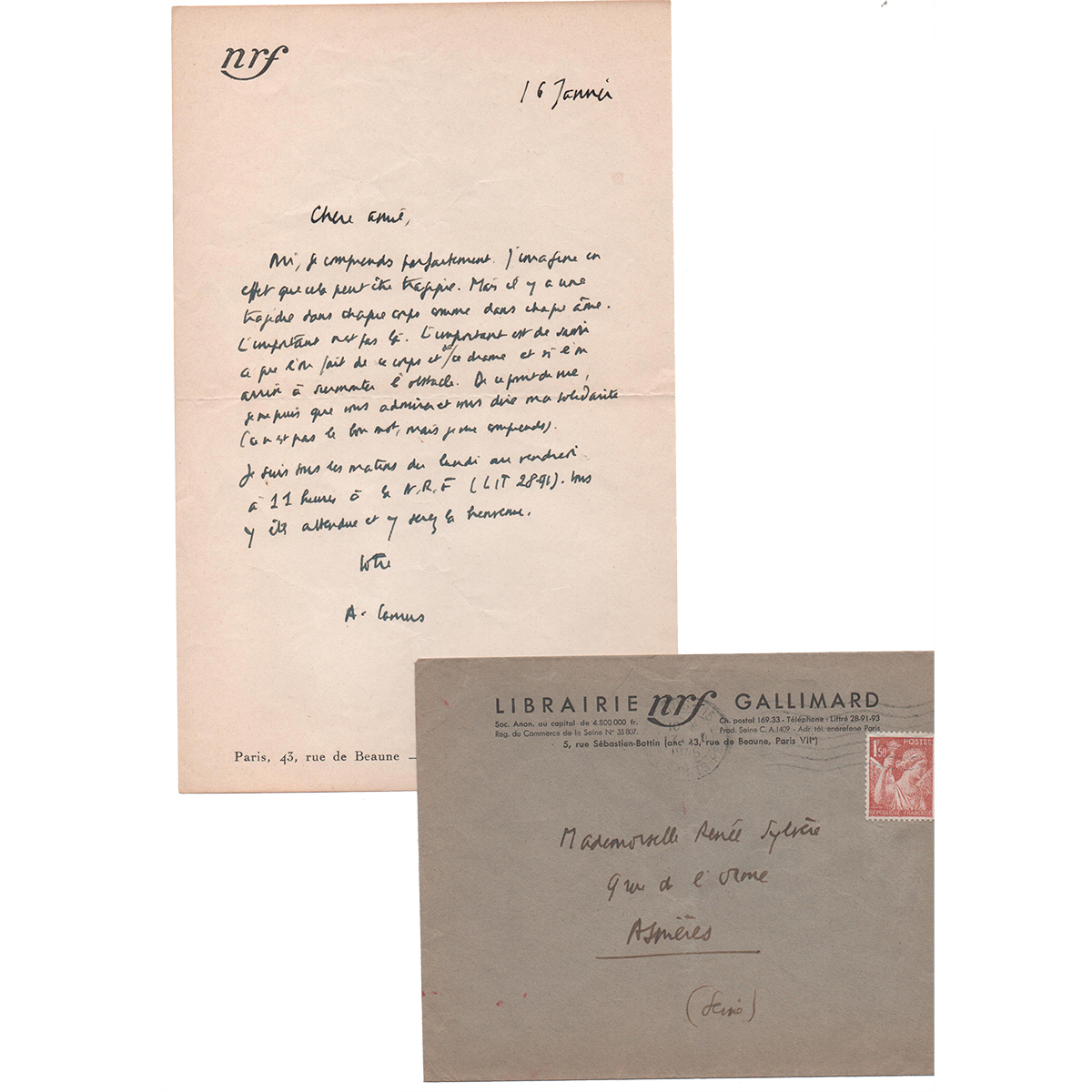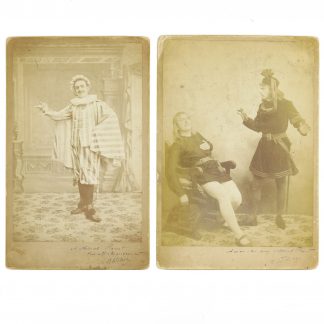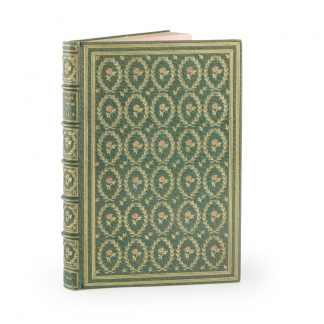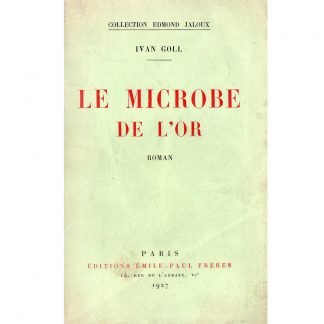Description
Renée Sylvère, better known as Renée Sylvaire, was one of the most important silent film actresses from 1908 to 1923, first with Gaumont, then Pathé, before becoming one of the leading female stars of the Éclair company from 1911. After disappearing from filming, she went on to act in the theatre and opened a bookshop on rue Saint-Julien-le-Pauvre and then rue de Pigalle.
Typescript letter signed, probably Camus's first letter to Renée Sylvère .
This letter is in response to criticism of the article entitled, General de Gaulle declares that the Syrian affair is now a matter for international justice published on 20 June 1945 during the crisis caused by the uprisings in Syria and Lebanon calling for an end to the French presence.
1 ? pages, on Combat magazine letterhead, with a typed envelope:
"Paris, 26th June 1945
Mademoiselle,
I read your letter carefully.
I would like to thank you very warmly and, if I may say so, very personally for the support you have given us so far.
Believe me, I appreciate the quality of it. So I can only deeply regret your current disapproval and try to respond in some imperfect way.
The exercise of intellectual honesty in journalism is not an easy one, because it is a daily exercise. It is therefore possible that some of our sentences, despite our intentions, may seem satisfactory to you. But what you should consider is the general line.
From this point of view, and despite the reflections to which your letter has prompted me, it seems to me that your proposal has not ceased to be more or less reasonable.
We have tried not to give in to a sentimental reaction, however legitimate, and we have tried not to aggravate such a painful problem. In doing so, it seems to me that we have done our duty as journalists and as French people.
Make no mistake about our thinking. In a way, we think it is excellent that General de Gaulle has this attitude. But it is good, and this is the advantage of democracy, that a part of public opinion tempers, in the eyes of foreigners, what this attitude could have been too trenchant.
Here are the explanations that I think I can give you. Of course I can't say with absolute certainty that we were right. We accept the risk of being wrong, but what we refuse to accept, and this is the whole point of my letter, is that our good faith and intentions should be called into question.
I would like to thank you in any case for writing to us so frankly, and I hope that you will see in the way I have replied to you the proof of our sympathy and esteem.
The editor.
Albert Camus
Autograph letter signed1 page, still blue, autograph envelope:
"13 Oct [1945]
Dear friend
Thank you for your letter. I'm glad you enjoyed the "letters". Would it amuse you to attend a performance of Caligula? If so, let me know what day. But give me half a week's notice. Remember that Caligula was written when I was 25 (I'm 32) and be indulgent when you see it. It's only the cry of a demand.
Yours faithfully
A. Camus.
Wouldn't you like me to read what you write?NRF
5 rue Sébastien Bottin
Paris
VII"
Autograph letter signed, 1 page on NRF headed paper, black ink, autograph envelope:
"January 16 [1946]
Dear friend,
Yes, I understand perfectly. I can imagine that it might be tragic. But there's a tragedy in every body and in every soul. That's not what's important. The important thing is to know what you do with this body and this tragedy and whether you manage to overcome the obstacle. From this point of view, I can only admire you and express my solidarity (that's not the right word, but I understand myself).
I'm at the N.R.F. (LIT 2891) every morning from Monday to Friday at 11 o'clock. You are expected and welcome.
Your
A. Camus
Various formats, envelopes retained.

